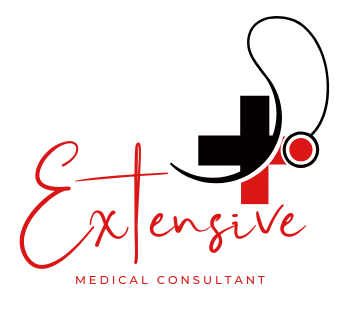Accreditation vs. Certification: What’s the Difference & Why It Matters for Your Clinic
By Extensive Medical Consultant | Reviewed by Dr. Scarlett Lusk, PhD, MPH, RHIA, CCHP , Founder & Compliance Expert
You’ve heard the terms. Accreditation. Certification.
But what’s the real difference—and which one does your clinic actually need?
Let’s clear the confusion once and for all—because knowing the distinction could save your clinic thousands of dollars, protect your reputation, and keep you compliant in 2025 and beyond.
Accreditation vs. Certification: What’s the Core Difference?
Definition
- Accreditation: Recognition that a healthcare organization meets established quality and safety standards.
- Certification: Recognition that a specific program or service meets set professional or regulatory criteria.
Focus
- Accreditation: Organization-wide (e.g., clinical practices, admin processes, patient safety).
- Certification: Specialty-focused (e.g., lab services, behavioral health, infection control).
Issued By
- Accreditation: Independent accrediting bodies (e.g., Joint Commission, AAAHC, NCCHC).
- Certification: Governmental or industry-specific agencies (e.g., CMS, state boards).
Is it Mandatory?
- Accreditation: Often voluntary—but sometimes required for reimbursement or contracts.
- Certification: Frequently required for compliance with state or federal law.
Why Accreditation Matters More Than You Think
- It’s not just a gold sticker.
Accreditation proves that your clinic doesn’t just meet the minimum—it operates at the highest standard of care. - It protects your clinic legally and financially.
In the event of audits, lawsuits, or inspections, accreditation can serve as a shield of compliance. - It builds patient and payer trust.
Third-party validation = higher credibility. Patients and insurance networks notice. - It improves internal operations.
Accredited clinics often run smoother, safer, and more efficiently—because they’ve fixed the gaps.
What Happens If You Ignore the Difference?
Many clinics assume certification is “good enough.” But skipping accreditation could mean:
- Denied contracts with major insurers
- Failed audits from oversight agencies
- Loss of Medicaid/Medicare participation
- Public relations nightmares after safety lapses
At Extensive Medical Consultant (EMC), we’ve worked with dozens of clinics who came to us after failing audits—all because they misunderstood the compliance ladder.
EMC’s Expert Tip: When to Pursue Each
Choose Accreditation If:
- You want to prove overall clinic excellence
- You're seeking high-level partnerships or contracts
- You want long-term sustainability + patient trust
Choose Certification If:
- You’re launching a new specialty program
- You’re required by state/federal law
- You need to validate specific staff or services
Pro Tip: Many thriving clinics pursue both. Certification often builds your base. Accreditation elevates your brand.
Case in Point: A Behavioral Health Clinic’s Wake-Up Call
One of our clients—a behavioral health provider in Texas—thought their state certification would suffice for a major payer contract. It didn’t.
When the Joint Commission asked for their accreditation during onboarding, they panicked.
With EMC's fast-tracked consulting, documentation support, and gap analysis, they earned their accreditation in record time—and unlocked $500K+ in contracts.
- From panic to profit.
How Extensive Medical Consultant Helps You Navigate Both
At Extensive Medical Consultant, we’re not just compliance advisors—we’re your strategic partners.
We offer:
- Accreditation readiness assessments
- Customized roadmaps for AAAHC, NCCHC, Joint Commission
- Program-specific certification checklists
- Documentation templates + audit prep tools
- Personalized support from
Dr. Scarlett Lusk and our expert consulting team
Ready to Get Accredited or Certified the Right Way?
Let’s get your clinic audit-ready—and stress-free.
Call us at
346-564-1335
Or DM us now on Instagram or LinkedIn to book a
free consultation discovery call.
Final Word
Don’t let terminology cost you time, money, or patient trust.
Know the difference. Choose the path. Partner with Extensive Medical Consultant















